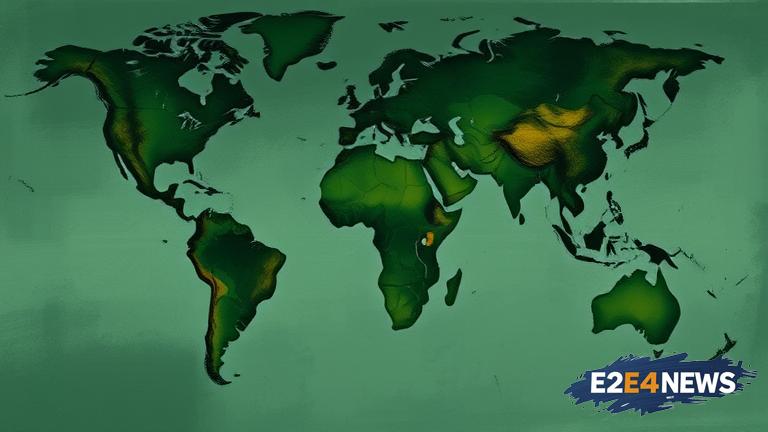Carbon colonialism is a phenomenon where wealthy nations and corporations exploit the natural resources of developing countries to generate carbon credits, which can be used to offset their own greenhouse gas emissions. This practice has been criticized for perpetuating inequality, environmental degradation, and human rights abuses. The concept of carbon credits was introduced as a mechanism to reduce greenhouse gas emissions, but it has been hijacked by powerful nations and corporations to further their own interests. In many cases, carbon credits are generated through projects that displace local communities, destroy biodiversity, and undermine the livelihoods of indigenous peoples. The Liberian government has been accused of colluding with foreign companies to exploit the country’s forests for carbon credits, without providing adequate benefits to local communities. This has led to widespread deforestation, soil erosion, and water pollution, exacerbating the already precarious environmental situation in the country. The carbon credit system has also been criticized for its lack of transparency and accountability, making it difficult to track the origin and ownership of credits. Furthermore, the system has been plagued by corruption, with some companies and governments engaging in fraudulent activities to generate credits. The impact of carbon colonialism on local communities is devastating, with many people being forced to leave their ancestral lands to make way for carbon credit projects. This has led to the loss of traditional livelihoods, cultural heritage, and social cohesion. The environmental consequences of carbon colonialism are also severe, with the destruction of forests, wetlands, and other ecosystems leading to biodiversity loss and climate change. In addition, the carbon credit system has been criticized for its failure to address the root causes of climate change, instead providing a false solution that allows wealthy nations to continue polluting while appearing to take action. The Liberian government has been urged to take a more nuanced approach to addressing climate change, one that prioritizes the needs and rights of local communities and the environment. This includes implementing policies that promote sustainable land use, protect indigenous rights, and ensure that benefits from carbon credit projects are shared equitably. The international community must also take responsibility for addressing the issue of carbon colonialism, by promoting transparency, accountability, and fairness in the carbon credit system. This can be achieved through the development of robust regulations, standards, and verification mechanisms that ensure the integrity of carbon credits. Ultimately, the fight against carbon colonialism requires a fundamental transformation of the global economic system, one that prioritizes human rights, environmental sustainability, and social justice over profit and greed. The Liberian government and the international community must work together to create a more just and equitable system, one that promotes sustainable development and addresses the root causes of climate change. The time for action is now, and it is imperative that we take a stand against carbon colonialism and its devastating consequences. The future of our planet depends on it. The carbon credit system must be reformed to prioritize the needs of local communities and the environment, rather than the interests of wealthy nations and corporations. This requires a fundamental shift in the way we approach climate change, one that prioritizes human rights, environmental sustainability, and social justice. The Liberian government and the international community must work together to create a more just and equitable system, one that promotes sustainable development and addresses the root causes of climate change.
